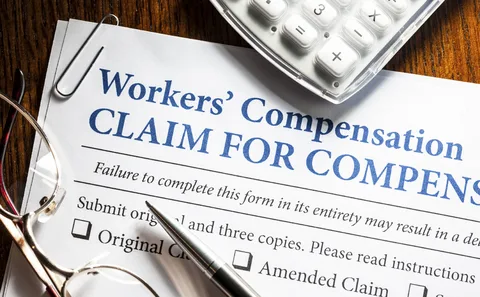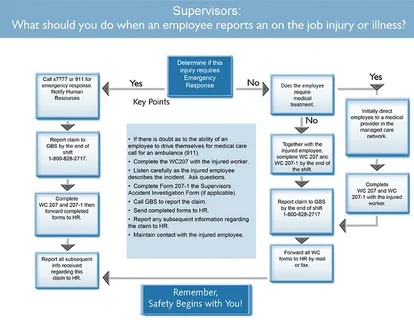Workers’ compensation insurance is a crucial safety net for employees who get injured or fall ill due to their job. This employer-funded program ensures that workers receive medical care and compensation for lost wages when they can’t work due to workplace injuries1. The core idea is simple: help employees recover without the financial burden falling solely on their shoulders.

Understanding Workers’ Compensation Insurance
Workers’ compensation insurance can seem like a maze, but it’s essentially a safety net for employees who get injured or ill because of their jobs. It’s an employer-funded program that ensures workers receive medical care and compensation for lost wages when they can’t work due to workplace injuries1. The core idea here is simple: help employees recover without the financial burden falling solely on their shoulders.
The Claims Process in Workers’ Compensation
If you ever find yourself needing to claim workers’ compensation, knowing the process can greatly simplify things. Firstly, you file a claim with your employer, who is legally bound to forward it to their insurance. Here’s where the Workers’ Compensation Board comes into play, stepping in to handle any disputes between you and the insurance company1. This process ensures that claims are handled fairly, focusing on getting you the support you need rather than getting tangled in blame.
Employer Responsibilities and Employee Rights
Employers have a big part to play in this system. They are obligated to keep the workplace safe to prevent injuries and must cover the costs associated with workers’ compensation insurance1. This doesn’t just protect employees; it also protects businesses from potential lawsuits. On the flip side, employees have rights too. They’re entitled to compensation if they get injured, regardless of whose fault it is. This balance helps maintain a fair workplace where safety is prioritized.
Financial Implications of Workers’ Compensation for Employers
Now, let’s talk numbers. Employers pay premiums for workers’ compensation insurance, and these can vary. Premiums are calculated based on the level of risk associated with different types of work. For example, a construction worker might have a higher premium than an office worker1. Employers can work on reducing these costs by implementing strict safety protocols and regular training. This not only lowers the risk of injuries but can also reduce the premiums they need to pay.

Common Misunderstandings About Workers’ Compensation
There are plenty of myths floating around about workers’ compensation. For instance, some think that if they caused their injury, they aren’t eligible for compensation. However, workers’ compensation is a no-fault system, meaning employees are entitled to benefits regardless of who was at fault for the injury1.
Injuries and Conditions Covered Under Workers’ Compensation
Workers’ compensation covers a broad range of injuries and conditions, from acute injuries like fractures or burns to chronic problems like repetitive stress injuries or long-term respiratory issues2. Understanding what’s covered is vital for every working professional. Here are typical conditions that qualify:
- Work-related accidents resulting in injuries
- Occupational diseases caused by exposure to harmful conditions at work
- Rehabilitation services post-injury to help return to work
How to File a Claim for Workers’ Compensation
Filing a compensation claim might seem daunting, but it’s crucial for accessing the benefits you deserve. The claim process requires specific documentation and adherence to certain procedures2. Here’s how you can navigate it:
- Report the injury to your employer immediately.
- Fill out the necessary claim forms provided by your employer.
- Submit the forms to your employer’s insurance company.
- Follow up with the insurance company to ensure your claim is being processed.
Determining Your Eligibility for Workers’ Compensation
Eligibility for workers’ compensation depends on several factors, including the nature of your job and the circumstances of your injury2. Generally, if you are an employee and you get injured or fall ill due to your job, you are eligible for workers’ compensation benefits.
Comparing Workers’ Compensation with Other Benefits
Workers’ compensation is just one of many benefits that employees might be entitled to. It’s important to understand how it compares with other benefits like health insurance, disability insurance, and unemployment benefits2. Each of these benefits serves a different purpose and provides different types of support.

Conclusion
Workers’ compensation insurance is a comprehensive system designed to support employees in times of need. From covering medical expenses to providing wage support during recovery, it plays a crucial role in maintaining an employee’s health and financial stability2. Whether you’re filing a claim or just looking to understand your coverage, it’s important to know the details and process involved in this essential employee benefit.
1: What Is Workers’ Compensation Insurance? – aupeo.com 2: What Does Workers Compensation Cover? | Aupeo.com
I hope this article helps you understand workers’ compensation insurance better! If you have any more questions or need further details, feel free to ask.
